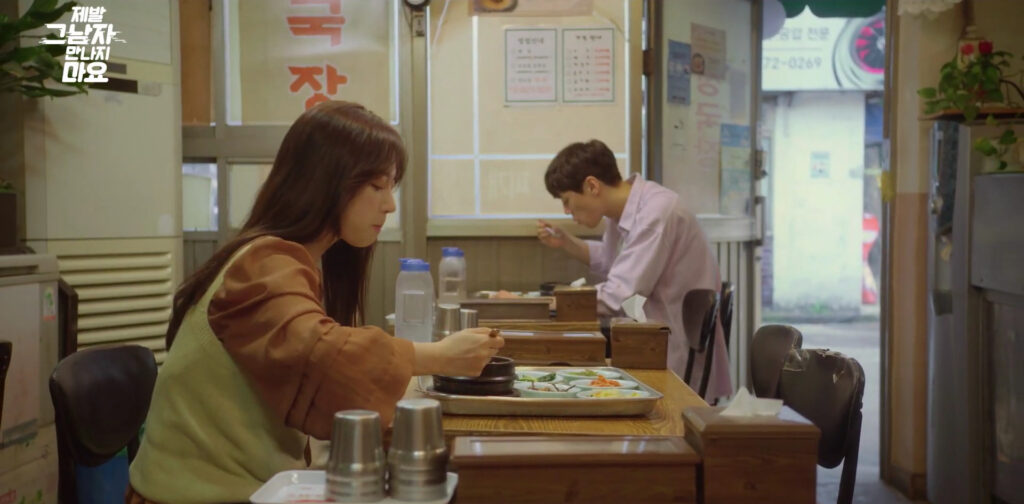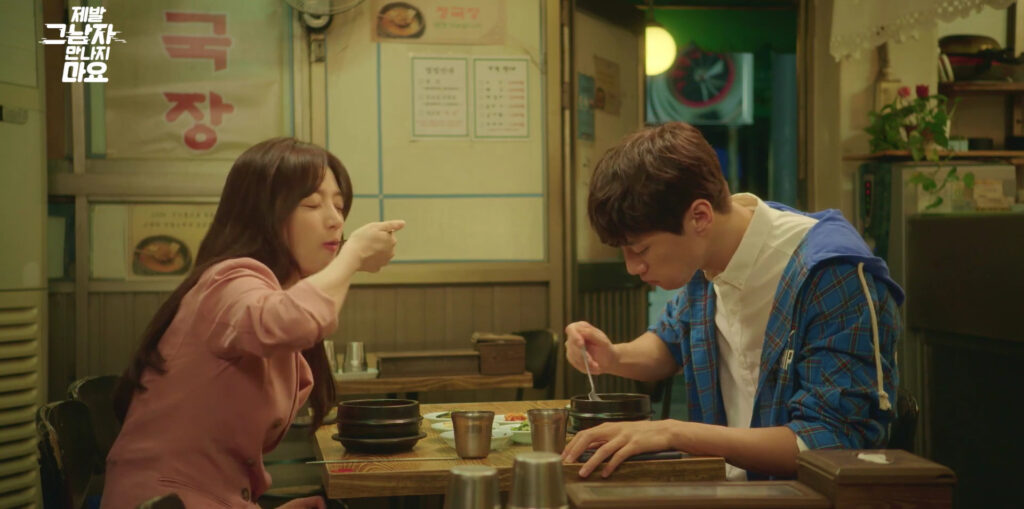
You’re out with a friend, and you take a photo together. Later, when you’re about to upload the shot to your social media, you realise you’ve captured the face of a stranger by accident. The person is in the background, but their features are identifiable. Do you delete the photo immediately? Do you blur out their face before uploading the photo? Or perhaps just upload it onto your social media anyway, because your account is restricted to your followers?
Such incidents happen often enough, yet we rarely pause to consider them as a form of data leakage, or a violation of privacy. Your social media account may not be public, but somebody could capture a screenshot and post it on a platform that is. Facial recognition technology today would make it considerably easier to identify the individual without needing an acquaintance of theirs to do so.
But so what? They may not have any reason to hide. They may have voluntarily posted their own photos onto the internet. Yet in this case, they didn’t give consent for their image to be captured, and they don’t have control over how this piece of data is used. These considerations bring up questions of ethics and agency that underpin complicated data and privacy issues. One doesn’t quite expect a Korean rom-com to delve into these complexities, but if you’re here reading Seoulbeats, chances are you already know how Korean pop culture can defy expectations.
In Please Don’t Date Him, a software developer is working on an intelligent fridge, Janggo, that assesses the user’s eating habits and the produce inventory to recommend their next meal. To her surprise, Janggo starts showing her data about the men around her, disclosing unpleasant sides they’ve been keeping hidden, and bringing a kind-hearted firefighter into her life. The premise suggests an offbeat rom-com is in store, but the show turns out to be deeply thought-provoking. With a balance of comedy and commentary, it serves up reflections on the complexity of personal data issues in the modern world, and how these influence our personal lives and relationships.
At 10 episodes, Please Don’t Date Him is considerably shorter than the typical drama. It wastes no time setting up its exploration of its themes of data and trust, first introducing viewers to different attitudes towards data through its contrasting leads. Ji-sung—played by Song Ha-yoon, who brings a similarly natural, heartfelt performance that she displayed in Fight My Way—works for an intelligent electronics company. As a child, she loved the sciences; this interest translated into a major in engineering, which turned into a career as a software developer. To her, science is something predictable and comforting:
When my parents separated, when I kept failing employment exams, when I had a hard time because of people at work… I would take out the science box from my childhood, and assemble everything from numbers 1 to 6 to find peace.
You can’t see what’s in others’ minds no matter how much you try. But when it comes to this, you can see the answer if you try… and eventually, you can complete it.
Needless to say, data and the prospect of new ways of using it excites her. She is technology-savvy, whether at work or in her daily life, and she keeps notes of ideas for upcoming innovations in her phone.
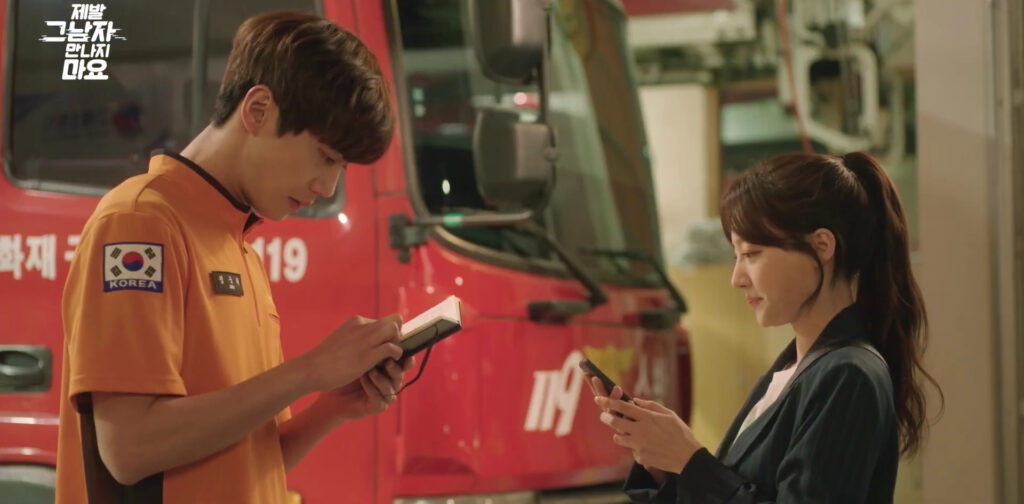
In stark contrast, firefighter Guk-hee (Lee Jun-young, or Jun of U-KISS) is resistant to technology. He owns a smartphone, but doesn’t even have a banking app or KakaoTalk, much less any social media accounts. He doesn’t surf the internet much, nor does he use GPS devices. His reasons for steering clear of technology are linked to a childhood accident and the bullying he experienced because of it. But they also result from his worldview, for he believes in “small data”—knowledge gained from observations and first-hand experience. “Reality is better than bits of information or photos,” he tells Ji-sung during one of their conversations about the exchange of data online.

The drama isn’t prescriptive about which view towards data is better. Instead, it uncovers the strengths and limitations of each view through the eyes of the leads. It shows how technology can make up for gaps in human understanding: when the owner of a restaurant that Guk-hee frequents receives a letter in Russian from her former part-timer, Ji-sung uses a camera translator app to help. But sometimes, technology fails, and that’s where Guk-hee’s knowledge comes in handy, such as when he successfully directs his work buddy and senior Oh-joong (Kim Kyeong-il) through a maze of back alleys when their GPS device fails during an emergency call.
Note: The next few paragraphs contain spoilers, and brief references to spycam crimes.
Through a carefully woven tapestry of incidents, the show also sheds light on a few truths about data: its inherent impartiality, the dangers of viewing it without context, and how it is easily misrepresented. The first few data profiles that Janggo puts together are exposés. Janggo literally pulls up the receipts of her manager, Byung-gil (Jung Min-sung), using their corporate credit card for personal expenses, and reveals that her fiancé, Jung-han (Lee Si-hoon), has been sending revealing images of her (taken without her knowledge via her home’s CCTV) to his chat group with his friends, and talking about her body and appearance disparagingly.
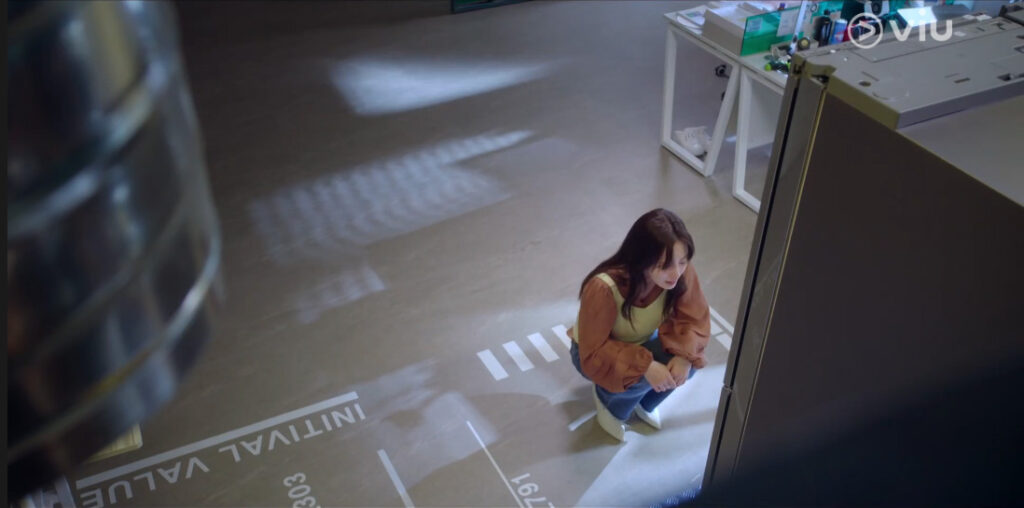
But Janggo is no crusader; it harbours incriminating information, but also other types of data. In a poignant moment when Ji-sung is at her lowest, lamenting that her efforts towards her seven-year relationship have resulted in nothing, Janggo reflects the truth back at her. It narrates, with an almost strange post-human warmth reminiscent of Epik High‘s “Sleepless“, the evidence that her hard work through life—participating in countless science competitions, bouncing back after multiple failed job interviews—has, contrary to her belief, borne fruit.
A deeper probe into these examples also yields the realisation that data doesn’t necessarily come in plain “good” or “bad” forms. It is simply what it is. What changes this impartiality is how the data is used and interpreted. “Machines show you data, but we are the ones who have to make a decision,” Guk-hee notes. The presence of almost-nude images in CCTV footage isn’t an issue, but installing a spycam under the guise of security purposes, only to obtain and disseminate these images in secret, is a crime and extreme violation of privacy.

Jung-han is portrayed as a pathetic, somewhat comical figure, but the repercussions of his actions and his full responsibility are never excused. This is driven home when Ji-sung’s mother, Eun-hwa (Hwang Young-hee), points out sharply that the conscious decision to capture and share private footage is no “mistake”, as Jung-han’s mother keeps calling it. “A mistake is when you accidentally step on someone’s foot on the bus,” Eun-hwa spits angrily.
While Jung-han’s use of data clearly comes from a morally wrong place, Please Don’t Date Him also delineates a grey area. The people who misuse data aren’t always bad. Ji-sung is the clearest example: she’s kind, smart, and capable, albeit a bit of a pushover at work. She mostly uses Janggo’s expertise for good intentions, to make sure that her friends and family are not unknowingly entering doomed relationships. For example, she searches up information about her mother’s new boyfriend, suspecting that he’s a gold digger, only to discover that he’s not only a gold mine himself, but also cheesy in his blogposts about his dates with her mother.
But it’s easy for plain curiosity to cross over into intrusiveness and premature judgment. Ji-sung is prone to jumping to conclusions about the data she is shown. When she observes Oh-joong getting friendly with her married friend, Gi-hyun (Gong Min-jung), she consults Janggo, who presents her with data that points to him as a devoted husband based on his chat logs with his wife. Having established that he’s married, she suspects the pair of infidelity. What she fails to notice is that the chat logs are strangely one-sided; Oh-joong’s wife is, in fact, deceased.
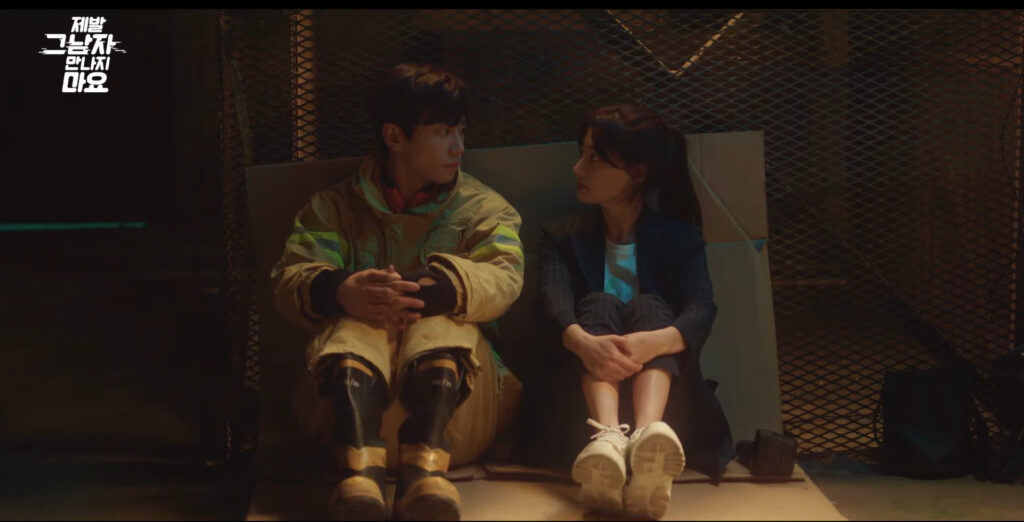
What Ji-sung doesn’t realise is that data doesn’t exist in a vacuum; acquiring data about one person reveals information about others, and there is no guarantee that all this will not be leaked. Through Oh-joong’s data, Ji-sung incidentally discovers that Guk-hee’s original name was Jae-min, and without the context for this decision, she assumes that he must be an ex-juvenile delinquent covering up his past in order to be a righteous civil servant. The downward spiral of events in the final two episodes also serves as a wake up call to Ji-sung. She learns the hard way that just because she meant well in unearthing the personal data of others, doesn’t mean that she is capable of protecting this data from others with malicious intentions.
While Ji-sung takes the perspective of a perpetrator—someone who unintentionally misuses data—Guk-hee shows the perspective of victims of misinterpreted data, and the far-reaching consequences they suffer. None of the facts of his childhood fire accident assign responsibility to any one party; as Oh-joong noted, it was a series of unfortunate events. But it was all too easy for the public to zoom in on one misreported point of the incident—the firefighter died, when he could have been safe—and produce a damning verdict that would lead to Guk-hee being bullied and gossiped about for the rest of his life, even as an adult. Perhaps each person who commented on the incident thought they were just expressing a passing opinion, not realising they are reproducing a twisted version of the events, and that if you say a lie enough times, it can start to sound like the truth.
Despite its heavy themes surrounding the complexities of data usage and privacy issues, Please Don’t Date Him is buoyed up by well-timed comedy and a sense of careful optimism. What happens to our personal data may at times be beyond our control, but the show suggests that we can manage how we approach information in our relationships. Whether we desire to know more, or to hide parts of us we’re not ready to reveal, the show reminds us to consider if our decisions are respectful to those around us.
Ji-sung and Guk-hee have very good reasons to distrust others, but somehow, they’ve found their way to each other. The show follows their journey as they expand each other’s views on data and ways of knowing, and explore the show’s central questions: Can we trust someone without knowing everything about them? Will knowing everything about someone make us able to trust them?

Trust is a double-edged sword. It can easily obscure red flags in behaviour, as the women of the show find out through their broken relationships. But it’s also a form of empowerment to be able to be open and vulnerable with someone, as Ji-sung’s strong friendship with Gi-hyun and Ye-seul (A Pink‘s Bomi) proves. As Ji-sung and Guk-hee learn, relationships are built on a careful balance between fostering closeness, but also knowing when to give the other person space when they aren’t ready to disclose parts of themselves. By putting in the courage and care necessary to brave this journey, they not only come to have each other to rely on, but also become stronger, surer versions of themselves.
(YouTube. Images via MBC.)
